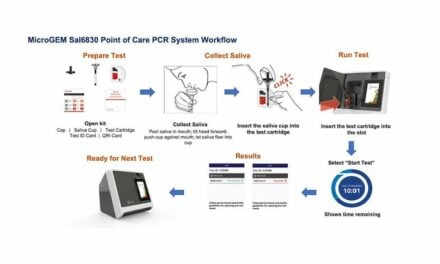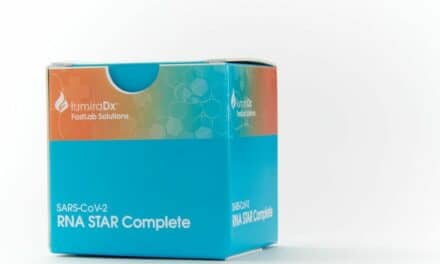Zurich-based Ava will be launching the first study of its kind to test whether a wearable device can detect a covid-19 infection in real-time and alert people to get tested or self-isolate prior to showing symptoms.
While other studies to date (including the COVI-GAPP study Ava announced in April 2020) have examined the feasibility of using machine learning and wearable devices to retrospectively detect covid-19 infection, the covid-19: Rapid Early Detection (COVID-RED) clinical trial will be testing real-life, real-time efficacy of Ava’s device (currently used primarily for fertility tracking) in helping stop the spread of the virus during its pre-symptomatic phase. Researchers will evaluate how well the bracelet and complementary app identify a covid-19 infection prior to symptom onset.
In a retrospective analysis of data from the COVI-GAPP pilot trial, Ava’s covid-19 infection detection algorithm was shown to accurately detect 71% of covid-19 positive infections at least two days prior to symptom onset. Ava expects the algorithm to perform similarly in the initial phase of the COVID-RED study, and iterative updates to the algorithm are planned through 2021 to further improve its accuracy.
In addition, Ava says it is the only wearable currently leveraged in the fight against covid-19 designed with a deep understanding of the science behind female physiology—a unique advantage, since researchers will be able to take menstrual cycle changes in multiple physiological parameters including skin temperature into account to prevent reporting false positives.
More than 20,000 participants of all genders and across general and high-risk populations will be provided with an Ava bracelet in the study, which began recruiting in February and is expected to run through November 2021.
Participants will wear the Ava bracelet for up to nine months nightly while they sleep; upon waking, they will be able to see an AI-generated indicator reflecting their overall health status. The underlying algorithm, based on changes in their physiological parameters over the preceding few days and/or self-reported symptoms, will display one of three possible indicators: no change in wellness detected; some minor changes in symptoms detected with the suggestion to stay home and self-isolate; or, changes in symptoms and/or biophysical data detected that could signal a potential covid-19 infection. Partnering with other consortium members like Roche and Sanquin, Ava will provide asymptomatic participants identified as potentially ill by the app with access to a diagnostic test, ideally enabling them to self-isolate and prevent infecting others.
“Ava has helped tens of thousands of women around the world conceive and start families since launching in 2016. Now we are taking the power of our scientific expertise and technology to join in the fight against covid-19 in a way no other wearable medical device has yet—by testing our infection detection algorithm in real-time, providing bracelet wearers with daily updates about their health and well-being,” says Ava CEO and Co-founder Lea von Bidder. “We believe our deep understanding of female physiology gives us a unique advantage over other wearables in helping solve this global health challenge.”
According to von Bidder, Ava’s covid-19 initial infection detection algorithm was trained on data from almost 500 women using the Ava Fertility Tracker who reported an infection in-app: “While historically medical research has relied on data and research using male participants then generalized to women, we are flipping the script at Ava — understanding women’s physiology first, then adapting algorithms to generalize to the whole population.”
For more information, visit Ava.




